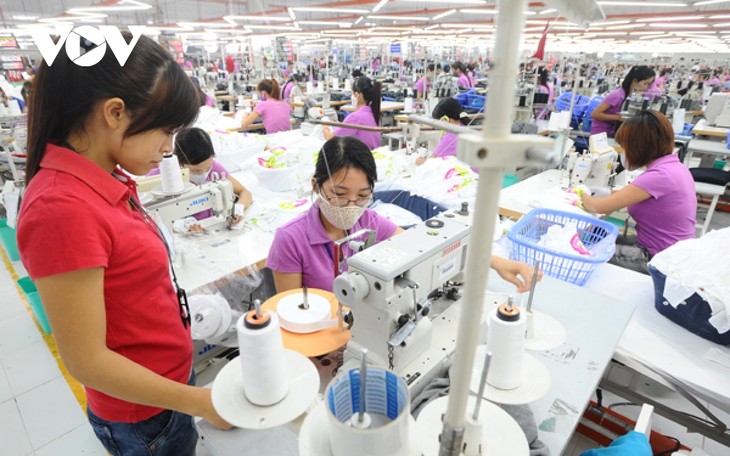(VOVWORLD) - The labor market has suffered negative impacts from the COVID-19 pandemic. Many people have lots their jobs and the average monthly income of workers has fallen. The Government and the Prime Minister have adopted a number of policies to support workers and employers affected by COVID-19.
 (illustrative photo: VOV) (illustrative photo: VOV) |
During the pandemic, 1.3 million people returned home from Ho Chi Minh City and other southern economic hubs. Most of them were informal workers.
Deputy Minister of Labor, Invalids, and Social Affairs Le Van Thanh said: “Surveys conducted in the major economic cities and provinces show a shortage of workers, but not too bad. Enterprises have not resumed their full capacity, just 30% to 70% of their capacity. About 50 to 60% of the workforce has returned to work. The demand for workers has not increased drastically. Some businesses had policies to retain their employees, so they aren’t experiencing a labor shortage in the fourth quarter of this year.”
In January, 2022, when the demand for goods for the Lunar New Year celebration increases, companies will need more workers to speed up production, so labor demand is forecast to increase in the first quarter of next year. New policies are needed to foster economic recovery. The Ministry of Labor, Invalids, and Social Affairs has drafted a program to recover the labor market that focuses on 7 areas.
“The first task is to give workers direct help to pay for food and travel. The second is to help employers resume production and generate jobs. The third is to train workers to meet businesses’ needs. The fourth is to match supply and demand. The fifth is to sustainably develop the labor market and finalize the national labor and job database and connect it to the Public Security Ministry’s residential database. The sixth is to ensure the living conditions of workers. And last is to ensure stable, progressive labor relations,” said Deputy Minister Thanh.
In addition to incentive policies for workers and employers affected by COVID-19, fiscal and credit policies to reduce, defer, or restructure loans and interest rates should be adopted to help businesses obtain loans to restore production.